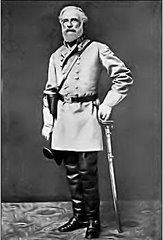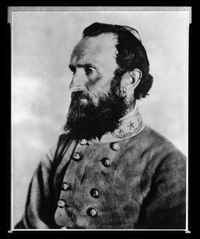You may recall that a while back I wrote a blog on corporate, Christian worship. Today, I desire to give a follow-up on that blog, perhaps being a little more in-depth, and hopefully a little more orderly with my writing.
The term "worship" is so universal, and organizing a blog on worship, as a whole, is actually hard to do. Where do you start? How in depth do you go? Where do you end? Worship could simply mean the glorifying of the name of God, and in the scope of different religions, any God. I want this blog to be about the Christian, weekly, corporate worship service, traditionally held on Sunday mornings. This is not the only way to bring glory to God, but I believe that it is essential to Christian living, and should, at some length, be discussed.
First off, I believe that weekly, corporate worship is desired by God. I believe it is good for good Christian growth. I also believe that a local church is able to help the spread of the Gospel. However I feel that this worship service is more than just that, and there are more reasons than just these to engage in corporate worship.
The early Christians were quick to engage in corporate worship, and from what we see of the Bible, the Bible calls this good, and even gives certain "rules" to follow in the worship (there is not actual set of rules and regulations, but the Bible does give some hints to the way our order of worship should be).
We also see something special about Sunday in Scripture, as if it is the Lord’s day. Obviously, everyday should be His day, but Sunday is perhaps different, to some degree. This leaves me believing that God desires the gathering of His people to have some form of communion with Him, at the corporate level, on this day.
Even deeper, we see throughout the Old Testament, the concealing of New Testament worship. In the Old Testament, God worked through His people with certain covenants. There was the covenant of marriage between Adam and Eve. There was the covenant with Noah that God made. There was the covenant with Moses, David, etc. They all point to Jesus Christ, ultimately, and the new order of things, which mirror the old order.
It seems fitting for the corporate Sunday morning service to be the fulfillment of these covenants; to be our covenant renewal service to God, to remember the covenant He has with us- the acceptance of His grace leads to eternal life. The traditional order of corporate worship services is even modeled similarly after the Old Testament covenants, which all have similar models themselves.
Looking at God’s covenants He has made, we see five basic steps in the order of His covenant. First, God takes hold. Secondly, God separates, and makes something new. He makes all things new. The third step in His covenant, is that God speaks. After that, God lays signs to remember His covenant. The fifth, and final step, is that God prepares for the future.
But don’t just take my word for it. Look at Scripture, and see how this five-step pattern is repeated through God’s covenants. Let’s first consider the covenant of creation, which is centered by God’s relation to Adam:
First, God takes hold of the ground, specifically the dust, in which He created. Before this, God had full sovereignty of the world, but this, now the sixth and final day of creation, God creates man. Genesis 1:4 tells us that He took hold of the ground in order to form His creation. Secondly, this dust that God took hold of, was separated and made new. God took a certain amount of it to form Adam. God breathed the breath of life in this dust, forming Adam. Thirdly, God spoke to this new creature. God tells Adam who God is and who Adam is, and their respective roles. God is Lord over all creation, but has given Adam authority over the animals. God tells Adam to serve and guard the garden. After this, God gives signs of His covenant. God gives Adam the Tree of Life, but tells Adam not to eat from the tree of the knowledge of good and evil. God gives Adam real and physical signs of the covenant. Finally, God prepares for the future, by giving Adam a bride, Eve, who could be a helper to Adam, as well as continue the human race, and God’s kingdom.
This was the first covenant. Now let’s continue to look at how other covenants follow this pattern. Let us consider the covenant of marriage between Adam and Eve, that God initiated:
First, God took hold of Adam causing Him to fall into a deep, death-like sleep. Next, God separates a rib from Adam’s body in order to make something new, Eve. Third, God speaks to Adam and Eve, telling them of their respective roles. Adam has the authority over Eve as husband, and Eve must submit to Adam. However, Adam must also protect Eve, and set the example, and treat Eve right, by loving her and cherishing her. God also tells of the joyous aspect of this marriage, that now Adam has "A helper comparable to Him," which He was missing before hand. God gives a physical sign to remember this covenant, sex. The mistreatment of this sign is the degrading of marriage, whether is be using it improperly, or even the failure to use it when it should be (marriage). Finally, God prepares for the future by promising that through the usage of this physical sign, other men and women will come, and marry. The human race will continue. This covenant is still used today, only illustrating the ultimate marriage between Christ and the church.
I can not go through every covenant on such a simply blog, but to make this even more clear, I will give one more example. Let us consider the covenant God made with Noah:
God graciously takes hold of Noah, and his family. God tells Noah what he wants done. He finds "favor in the eyes of Yahweh." God then separates Noah and his family from the world, in order to form a new creation. Noah would be like a new Adam, where his family would start the whole world over. Next, God speaks to Noah, telling him what authority he now has, as beginning the world over. There is a slight, new way of life. God commands Noah and his family to "be fruitful and multiply." After this, God remember His covenant with Noah by giving signs of His covenant. God gives Noah a new sacrificial system to follow, and God also shows Noah a rainbow, which should remind Noah that God never again would flood the world. Finally, God prepares for the future by promising Noah that He never would again flood the world.
The same pattern is seen in the covenant with David, Abraham, Moses, and so forth. For the sake of the length of this blog, it will not be mentioned. You can see the examples from the previous covenants mentioned. The same pattern can be found in many traditional Sunday services, although it is not found real often in many American churches today. Consider this kind of service:
God takes hold of His people, calling them into worship. The people respond by coming boldly and firmly into God’s presence, giving Him adoration and glory. Secondly, God separates us from the world and from our sin, so that we may be forgiven, and made new. After this, we receive Scripture readings and the sermon, where God speaks to us (this is not to say that the preacher is infallible, but the Word of God). After this, we give our tithes and offerings and partake in the Lord’s supper, where God remembers His covenant through physical signs. Then, God prepares for the future when we receive a benediction to "go" in the world, in the peace of Jesus Christ.
In the Old Testament, God’s signs were the sacrificial system and circumsision. Now, we have the Lord’s Supper and Baptism. Jesus gave us the Lord’s Supper in what is often called, "The Last Supper." Jesus gave us Baptism when He was baptized by John the Baptist. Colossians 2: 11-13 reads, "In Him you were also circumcised with the circumcision made without hands, by putting off the body of the sins of the flesh, by the circumcision of Christ, buried with Him in Baptism, in Him which you also were raised with Him though faith in the working of God, who raised Him from the dead. And you, being dead in your trespasses and the uncircumcision of your flesh, He has made alive together with Him having forgiven you all trespasses,.." This shows that Baptism is the fulfilling of circumcision. At the Lord’s Supper, Jesus told His disciples to "Do this in remembrence of me."
All of this is a picture of the ultimate covenant, where Jesus comes, God’s people are taken from the world, to be made new through Jesus, we are given Baptism and the Lord’s Supper instead of circumcision and animal sacrifices, and God prepares the way by His people setting up churches, ordaining Pastors, Elders, and electing deacons, and obeying the Great Commission. Now these churches should meet to renew their covenant with God, and in all ways, give Him praise and glory.
Also, please remember that this structure is written on the standpoint of weekly Christian corporate worship, not any Christian gathering. I do think that there should be order and structure to any Christian gathering, but some may not serve the purpose that Sunday morning service serves. Sometimes there may be Bible studies, local praise and worship gatherings, or even church activities just for fun. All of these have their place, but can not replace what should happen on Sunday morning services.
Sunday service, in and of itself, is not merely evangelism. In and of itself, it is not merely experience, where one’s personal emotions are lifted. It is not education, in and of itself. It is not merely a social gathering either. Ultimately, is includes all of these, but just calling this worship service merely "experience," "education," or "evangelism" is not true. However, it is much more than merely any one of these in specific. I feel that often some churches tend to break it down to one of these. Some churches I see focus more on the "personal emotions" while I see others focusing too much on the "education" part of the service. It is really all of these, in a much more powerful way than many other church activities.
I think that even beyond all the covenantal theologies, though, that worship can be basically systemized, even true weekly, Christian, corporate worship. I do think that God can here worship that may not be completely theologically accurate, but is done with a fearful heart, that thus, should be learning. When you worship, give God your best worship. Do not be Cain, and give God only part of yourself, only wanting to do things your way. Be Abel: living for God, and always wanting to give Him your all in worship. I also believe that weekly corporate Christian worship is essential, and that it should not just be considered "extra" or "icing on the cake" to Christian living. In all ways, worship God in spirit and in truth, and continue to study God’s word, that your worship to God will be beneficial to God’s Kingdom, and more and more pleasing in God’s sight.
Subscribe to:
Post Comments (Atom)










No comments:
Post a Comment